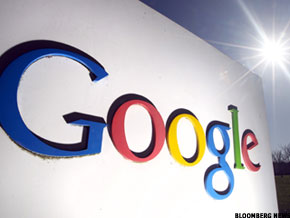IT'S a common enough scene at restaurants, diners fighting to pay the bill. Some say it's a Malaysian thing.
We also know that some people give the impression of wanting to pay and are able to cleverly ensure that the wallet would conveniently stay in the pocket when the bill arrives.
I was having lunch with my wife at a restaurant recently and two gentlemen at an adjoining table, after finishing their meal, did just that. It was quite a scene, though in a good-humoured way, with the waiter caught in the middle.
I was quite tempted to tell them that if they were both so keen about paying, how about settling my bill as well.
I am not sure who paid in the end but it got me thinking about the joy of giving and receiving.
You cannot have one without the other.
And while we may say that it is better to give than to receive, without the act of receiving, you cannot let the other person experience the joy of giving.
Let me be clear here that I am not talking about bribery where it is absolutely wrong to be either the giver or the receiver, even if the corrupt think there is much joy in the process.
It is part of our human nature to give, be it of our time or our money. We feel good when we help someone who is going through a bad patch, donate to a charity or volunteer to teach at an orphanage.
And it is even better when we do all this without drawing attention to ourselves.
A wise saying puts it this way: “When you give to someone in need, don't let your left hand know what your right hand is doing.”
But what about receiving?
People who are very generous in their giving are sometimes highly uncomfortable when it comes to receiving.
Perhaps they think there is an ulterior motive involved.
So, instead of simply saying thanks, they give us the impression that the reason for our giving is suspect.
And then there are those who, even if they receive your gift, will take the next opportunity to give you something back, often of equivalent value.
So, the true spirit of giving and receiving is totally lost here.
A general rule of thumb when we are blessed by someone is to pass on the blessing, not to reciprocate or pay for it.
Because of my stints as a full-time househusband and also working for a charity organisation, it is quite normal for my friends to pay whenever we have a meal together.
Perhaps, out of habit, they still do so and I have to remind them that I can now afford to pay the bill.
Normally, to avoid a scene, I would leave my credit card or money with the waiter ahead of the meal.
Last Sunday, I was having breakfast with two dear friends when an elderly man at the next table recognised me although we had never met before. He was reading The Sunday Star and we had a nice chat.
He said goodbye and then the waiter came up to us and said our bill had been settled. Thank you Mr Wong, I certainly receive this breakfast treat from you with a grateful heart.
So, friends, today as you go out for a meal, remember this. Though it is better to give than to receive, be gracious in receiving as well. You could make someone really happy. There really is no need to fight over the bill.
> Deputy executive editor Soo Ewe Jin appreciates being on the receiving end of kind words, sincere fellowship and heart-to-heart conversations, underscoring the fact that the best things in life are not only free, but priceless.
Related posts:
Give, you should receive!
Recognise talent and help others to soar


